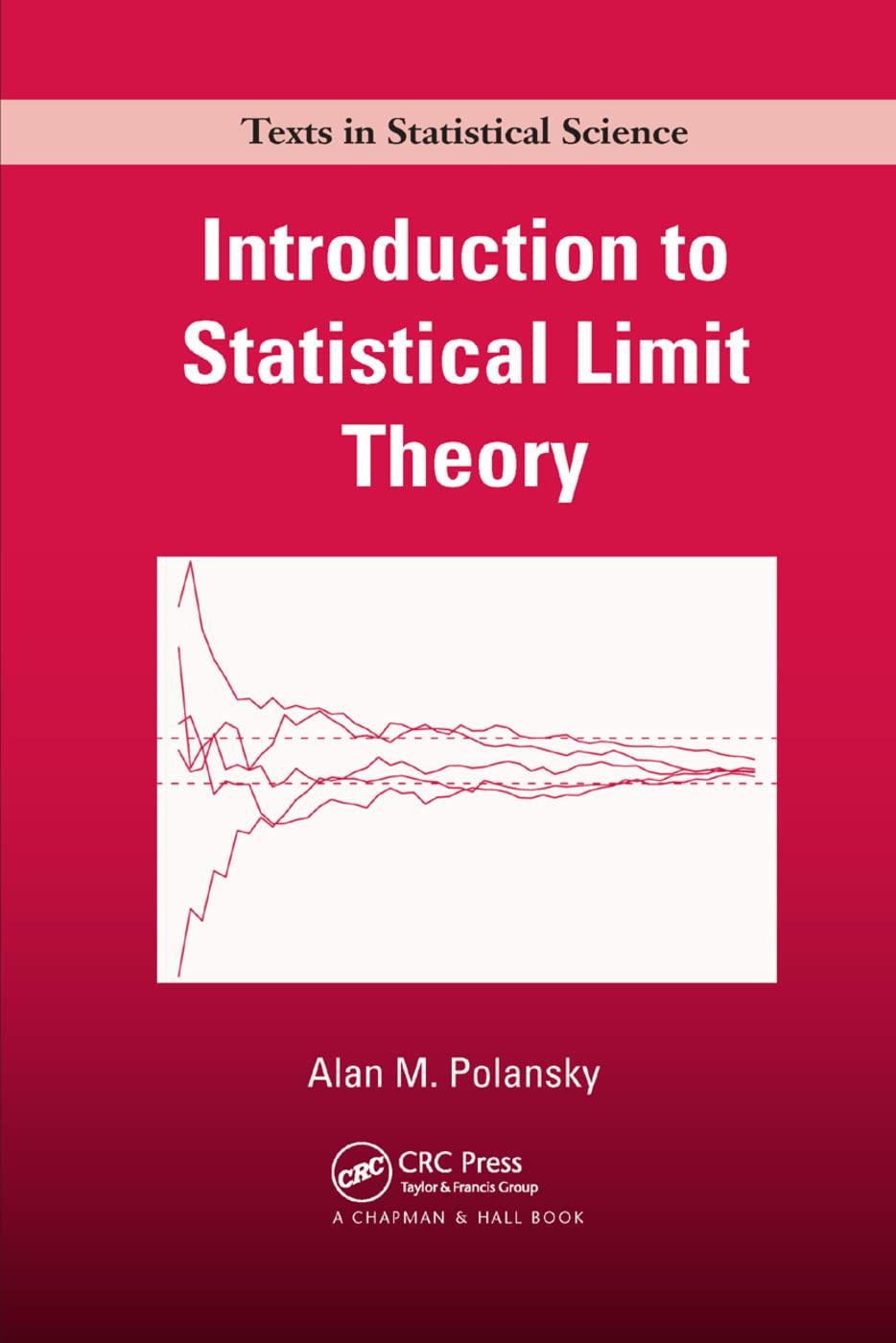Let (tleft(x_{1}, ldots, x_{r}ight)) be a real valued function. Prove that [I(G)=int_{-infty}^{infty} ldots int_{-infty}^{infty} tleft(x_{1}, ldots, x_{r}ight)
Question:
Let \(t\left(x_{1}, \ldots, x_{r}ight)\) be a real valued function. Prove that
\[I(G)=\int_{-\infty}^{\infty} \ldots \int_{-\infty}^{\infty} t\left(x_{1}, \ldots, x_{r}ight) \prod_{i=1}^{r} d\left[G\left(x_{i}ight)-F\left(x_{i}ight)ight]\]
where \(F\) and \(G\) are members of a collection of distribution functions given by \(\mathcal{F}\) and \(F\) is fixed, then there exists a function \(\tilde{t}\left(x_{1}, \ldots, x_{r} \mid Fight)\) such that \[I(G)=\int_{-\infty}^{\infty} \cdots \int_{-\infty}^{\infty} \tilde{t}\left(x_{1}, \ldots, x_{r} \mid Fight) d G\left(x_{1}ight) \cdots d G\left(x_{r}ight)\]
Use a constructive proof using the function \[\begin{gathered}
\tilde{t}\left(x_{1}, \ldots, x_{\mid} Fight)=t\left(x_{1}, \ldots, x_{r}ight)-\sum_{i=1}^{r} \int_{-\infty}^{\infty} t\left(x_{1}, \ldots, x_{r}ight) d F\left(x_{i}ight)+ \\
\sum_{i=1}^{r} \sum_{\substack{j=1 \\
j>i}}^{r} \int_{-\infty}^{\infty} \int_{-\infty}^{\infty} t\left(x_{1}, \ldots, x_{r}ight) d F\left(x_{i}ight) d F\left(x_{j}ight)-\cdots \\
\quad+(-1)^{r} \int_{-\infty}^{\infty} \cdots \int_{-\infty}^{\infty} t\left(x_{1}, \ldots, x_{r}ight) d F\left(x_{1}ight) \cdots d F\left(x_{r}ight) .
\end{gathered}\]
Step by Step Answer:






